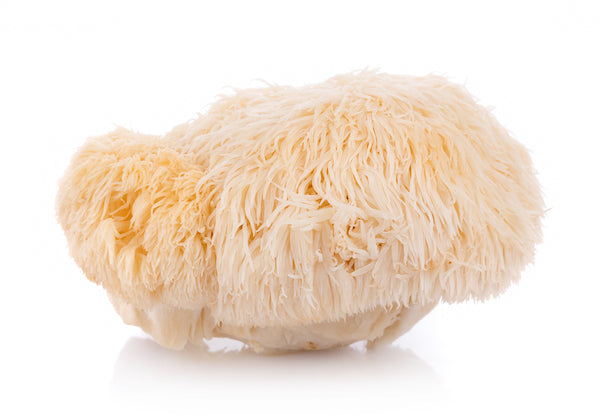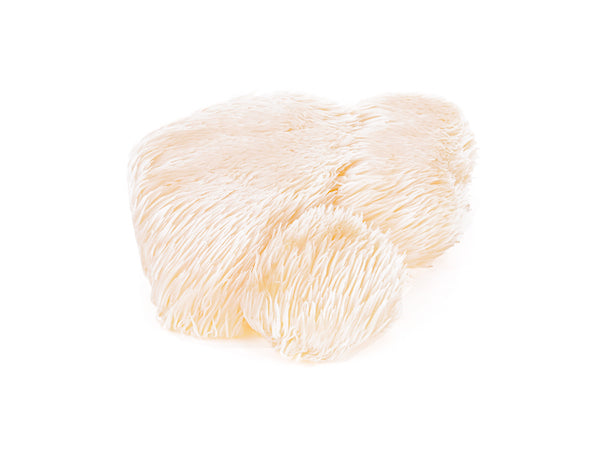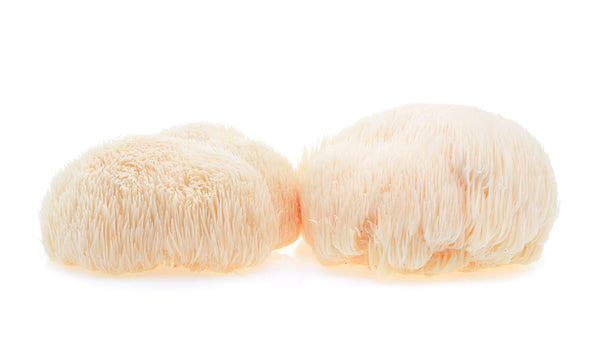Is Lion’s Mane Addictive? Can It Cause Dependence?
Among the natural wonders that are adaptogenic mushrooms, Lion's Mane stands out, not just for its health benefits but also for the curious inquiries it sparks. One question that often surfaces is about its addictive potential. Given its growing popularity, it's essential to address this concern head-on.
Lion's Mane mushroom is not considered addictive. Its natural compounds promote health benefits without the addictive properties associated with certain substances. Research and historical use suggest Lion's Mane is safe for regular consumption, contributing to its appeal in wellness circles.
What Is Lion's Mane?

Lion's Mane is a medicinal mushroom that has been cherished for centuries in Eastern medicine. Its unique nutrients and bioactive compounds contribute to various health benefits, from cognitive enhancement to immune support, setting the stage to explore its addiction potential.
What Makes Something Addictive?
Addiction is a complex condition, often characterized by the compulsive use of a substance despite harmful consequences. It's not just about wanting something; it's a physiological and psychological need that can dramatically impact one's life. When we talk about substances being addictive, we're typically referring to their ability to hijack the brain's natural reward circuits, leading to repeated use.
In the realm of supplements, particularly those derived from natural sources like Lion's Mane, the risk of addiction is quite low due to the absence of psychoactive compounds that significantly alter brain chemistry.
Key Factors Contributing to Substance Addiction
Several factors contribute to the addictive potential of a substance. These include:
- Psychoactive Effects: Substances that alter mood, consciousness, or perception tend to have a higher addictive potential because they can directly influence the brain's reward system.
- Tolerance Development: Over time, the body may require larger amounts of the substance to achieve the same effect, leading to increased usage.
- Withdrawal Symptoms: The physical or psychological symptoms that occur after reducing or ceasing intake of an addictive substance can perpetuate the cycle of addiction, as individuals may continue using the substance to avoid discomfort.
Lion’s Mane Addiction Potential

Understanding Lion's Mane's addiction potential requires a close look at its composition and its effects on the human body. Packed with health-promoting compounds like beta-glucans, hericenones, and erinacines, Lion's Mane is known for its cognitive and immune benefits rather than any addictive properties.
What’s Inside Lion’s Mane?
Lion's Mane contains beta-glucans, which boost immunity without psychoactive effects that could lead to addiction. Hericenones and erinacines, which enhance nerve growth and brain health, also show no addictive properties.
Are There Any Addictive Compounds in Lion's Mane?
Current research finds no addictive compounds in Lion's Mane. Its natural components support bodily functions beneficially, without triggering the brain's reward system or causing dependency symptoms like tolerance or withdrawal.
Is Lion’s Mane Safe To Use?
Studies have consistently shown Lion's Mane to be safe, with minimal side effects, further dispelling addiction worries. This animal study showed long term use led to no adverse affects at all. This animal study showed that Lions Mane was safe to use even in high doses.
In summary, Lion's Mane is safe for regular use, offering significant health benefits without the risk of addiction. Its lack of addictive substances makes it a reliable supplement for enhancing wellness.
How to Use Lion’s Mane Safely

Incorporating Lion's Mane into your wellness routine can be done effectively with our cacao latte blends. These blends offer a delightful way to consume Lion's Mane, ensuring safety and enjoyment in every sip.
Recommended Dosages and Forms
When it comes to daily intake, the consensus among studies and supplement guides suggests a dosage range for Lion's Mane from 250 mg to 1,000 mg per day. Our cacao latte blends are formulated to fall within this recommended range, providing an ideal daily dosage of Lion's Mane in a single serving.
By using extract powders, known for their superior bioavailability compared to standard powders, our cacao lattes ensure that your body receives and effectively utilizes the beneficial compounds of Lion's Mane. This makes our blends not only a delicious addition to your daily routine but also a strategically beneficial one for cognitive health and overall well-being. You can shop our full range here.
FAQs for Lion's Mane and Addiction
Is Lion's Mane Safe for Long-Term Use?
Yes, Lion's Mane is generally considered safe for long-term use when consumed within recommended dosages. It has a low risk of adverse effects and is well-tolerated by most individuals.
Can Lion's Mane Cause Dependency?
There's no evidence to suggest Lion's Mane causes physical dependency or withdrawal symptoms, making it a safe addition to your wellness routine.
Can You Develop a Tolerance to Lion's Mane?
There's no evidence to suggest that individuals can develop a tolerance to Lion's Mane, meaning its benefits can be enjoyed consistently without needing to increase the dosage over time.
Can You Have Withdrawals from Lion's Mane?
No, Lion's Mane does not cause withdrawal symptoms, as it lacks addictive properties and does not lead to physical dependency.
Closing Thoughts
Lion's Mane mushroom offers a plethora of health benefits without the risk of addiction, making it an excellent choice for those seeking natural wellness solutions.

For those interested in exploring the benefits of Lion's Mane and other adaptogens, Tonik Fusion's blends offer a convenient and delicious way to incorporate these powerful mushrooms into your daily routine, you can check them all out here. If you're not sure which one is right for you grab them all or take our quiz to discover the perfect blend for your health goals..